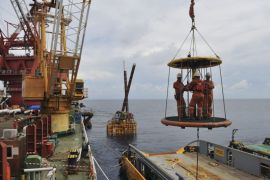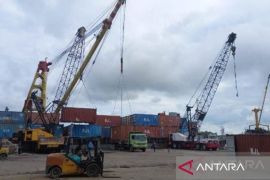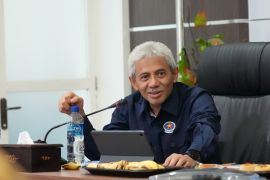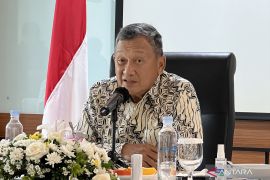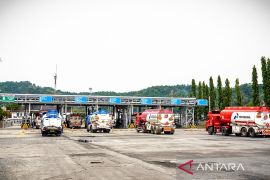Jakarta (ANTARA Babekl) - The Tangguh Liquefied Natural Gas (LNG) plant, Train II, in West Papua province, has stopped its operation for several weeks due to a small fire that broke out on its cooling unit, an official said.
Deputy for operation of the Oil Gas Regulating Agency (BP Migas) Gde Pradnyana said here on Sunday that the small fire took place on the cooling unit of Tangguh`s Train II last Tuesday 11.30 local time.
"Based on procedures, the operation of Train II should for the time being be terminated as soon as possible," he said.
He said the stoppage of the operations would last for a relatively long time because its equipment needed repair or replacement.
"It will possibly take several weeks before it could return to its normal operations," he said.
The fire which was believed to have taken place due to overheating at its cooling unit has been extinguished.
He said that Tangguh`s Train I meanwhile was still in a maintenance period and was still in preparation to return to normal operation.
Operated by BP Indonesia in the Bintuni Bay, the Tangguh LNG refinery plant has two trains which respectively have a capacity of 3.8 million tons per annum.
Tangguh`s LNG production has been exported since mid-2009 with an export contracts to China, South Korea and the United States.
PB Indonesia has a share portion of 37.16 percent with its partners MI Berau VB 16.3 percent, CNOO Ltd 13.9 percent, Nippon Oil Exploration (Berau) Lted 12.23 percent, KG Berau/KG Wiriagar 10 percent, LNG Japan Corporation 7.35 percent and Talisman 3.06 percent.
In the meantime, the government has been urged to use gas produced at home for meeting domestic demand.
The House of Representatives (DPR) asked that gas produced in Indonesia, including that of the Tangguh field, must be used to meet domestic demand.
"So far gas supplies for industries and power generators are not maximal. It had better for the government to give a priority to domestic needs in using Train 3 production of the Tangguh gas field," Bobby Rizaldi, member of the DPR`s Commission VII on energy affairs, said here on Friday.
If the price of domestic gas is already able to equalize the price formula of gas export, the government then should give priority to domestic needs.
"The government should not continue to be bound by exports for reason of high price. Time now has come for Indonesian to use product approach, not merely price approach because this concerns strategic energy resilience," the legislator said.
The government has said earlier that gas production would be used to meet domestic demands after the current work contracts of companies producing gas have expired.
Deputy Minister for Energy and Mineral Resources Rudi Rubiandiri said that after the work contracts of companies producing gas for exports expire, the gas produced will be used to meet domestic demand.
"The government has determined that the gas produced after the expiry of those contracts would no longer be exported but be distributed to meet local requirements," he said here on Friday.
"The extra gas will be distributed to domestic industries based on their respective infrastructural capacities," Rudi added.
(Uu.A014)




